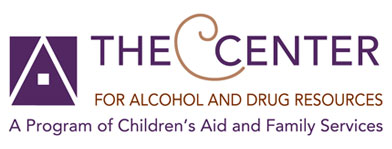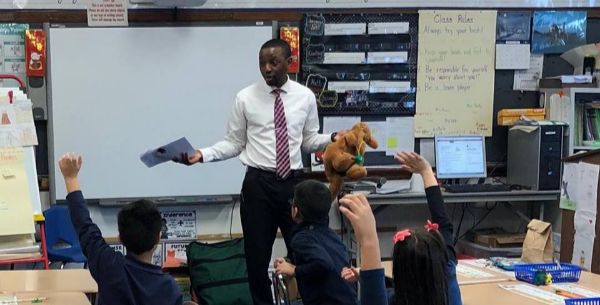Our classroom programs for youth are interactive lessons and activities that create positive learning experiences, giving youth the tools they need to make responsible, healthy decisions.
All Municipal Alliances will receive a Form 11 after program completion.
* My Generation Rx (Grades K-12)
“Generation Rx” is a nation-wide educational initiative to promote safe medication practices in an effort to prevent the misuse of prescription drugs including opioids. Students learn about the importance of using medications safely, key skills to turn down invitations to misuse and also positive alternatives to cope with the demands of life. PowerPoint presentations, role-play, and games are used to support learning.
Program Length: 2-4 sessions
Forest Friends (Grades 1-2)
This primary prevention program utilizes puppets to help students learn skills to appropriately express feelings, resolve conflicts, and establish healthy relationships with adults and other children. Each week’s session builds on the lessons learned in previous ones. In every session, students are told a story using the Forest Friends puppets covering the following topics: feelings and communication, honesty and trust, respect, self-image/self-esteem, decision-making and acceptance of others. After the story there is a discussion and related activity. Parent letters summarizing the lesson are sent home each week.
Program Length: 6 Sessions
* Footprints for Life (Grades 2-3)
This evidence-based program builds important life skills and social competencies using puppets in “real life” situations experienced by a children’s soccer team. Students develop planning and decision making skills, interpersonal skills, and peer pressure resistance skills and how to resolve conflicts peacefully. A short homework sheet and parent letter accompanies each lesson. Program evaluations are completed by classroom teachers.
Program Length: 6 sessions
Steps to Respect (Grades 4-6)
The research-based program uses interactive lessons and role-playing to teach elementary students to recognize, refuse, and report bullying, how to be assertive not aggressive, and how to build friendships.
Steps to Respect lessons can help kids feel safe and supported by the adults around them so that they can build stronger bonds to family, school and community allowing them to focus on academic achievement. Students will learn skills that are modeled with role-play activities, age appropriate realistic scenarios lead to solution discussion and interactive lessons.
Program Length: 6 sessions
* Too Smart to Start (Grades 4-6)
This is a program teaches students about the effects of alcohol and the brain and body, dangers and consequences of underage drinking and skills to become better equipped to respond to difficult situations including those that involve alcohol.
This program is a collaboration based on evidence- based practices and principles and was designed by the Substance Abuse and Mental Health Services Administration (SAMHSA) and Scholastic Inc.
Program Length: 2 sessions
Alcohol, Nicotine and Other Drug Presentation (Grades 3-5)
Using age-appropriate language, students learn about prescribed medicine as drugs that cure or lessen the effects of diseases and injuries and that these drugs can be harmful when not taken correctly. They also learn the differences between prescription and over-the-counter medications, and who they can take medicine from. The legal drugs, nicotine and alcohol, are presented in more detail including how these drugs affect the body. Finally, using role-play, students learn about and practice decision making, peer pressure and coping skills
Program Length: 2 sessions
Don't see what you are looking for? Give us a call!
For information and pricing contact: Marigrace Flynn at 201-740-7098 or mflynn@cafsnj.org
* Program appears on Curriculum Resources for Educating Children about the Dangers of Substance Abuse, released by Kimberly Harrington, NJ Education Commissioner (2017)
-
 Teacher Review
Teacher ReviewI like the combination of presentation by the instructor, video or slide presentation and workbook activities. I also liked some of the role play.

